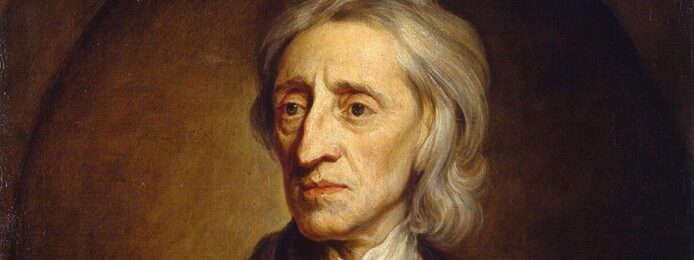This website uses marketing and tracking technologies. Opting out of this will opt you out of all cookies, except for those needed to run the website. Note that some products may not work as well without tracking cookies.
Opt Out of Cookies|
By Olivia Pierson
First published onInsight@theBFD 5/03/2020 No discussion of human rights can ever be embarked upon without at least a basic summary understanding about the thoughts of English political philosopher John Locke (1632 – 1704). In his work Two Treatises on Government, Locke, who had just returned from exile in Holland when the 1688 Glorious Revolution saw William of Orange take the throne, argued against the divine right of kings while his contemporaries, Thomas Hobbes and Sir Robert Filmer, had made arguments for it – Filmer because he believed kingship was a sovereign right ordained by God, and Hobbes because he believed man to be so base and corrupted that he must be subject to external controls, i.e, absolute governance. Locke’s ideas about personal liberty were indeed truly radical. He believed that man had an absolute right to fight off an abusive government, a right which rested on the same principle that afforded a man “in a state of nature” the right to fight off an intruder into his home. In a state of nature, thought Locke, man was born free and equal, and in possession of certain faculties, namely – reason and the power to imagine abstractly (a conceptual mind). The ability to personally govern our will, passions and desires is dependent upon our natural mental ability to abstract, i.e, to project our consciousness into past, present and future scenarios, all the while relating them to the self, in order to rationally regulate and choose our own actions through judgement. This basis for self-governance arises from the concept of self-ownership, and to install by consent a government over the free citizens of a society, rights by compact, could only be successful if a population – and also a government – were capable of virtue. Locke wrote, “Every man has a property in his own Person. This nobody has a right to, but himself.” In Enlightenment parlance ‘personhood’ encompassed the personal realm of one’s body, one’s thoughts, one’s speech, one’s freedom, one’s conscience, one’s time, one’s happiness and one’s labour. The term “property rights” did not narrowly pertain only to material acquisitions, it very much included this realm of the deeply personal – essential attributes of possessing a human identity. We are born free and are self-owned. Locke referred broadly to a divine order which makes it so – as long as we are the property of Nature, Nature’s God or the Creator, we are the property of no other human being. America’s Founding Fathers beautifully echoed Locke’s liberty rights in the Declaration of Independence: We hold these truths to be self-evident, that all men are created equal, that they are endowed by their Creator with certain unalienable rights, that among these are life, liberty and the pursuit of happiness. These liberty rights require nothing from others, except that they exercise the virtue of tolerance (live and let live), hence being often referred to as “negative rights.” Thus Locke’s concept of a liberty-oriented, self-governing society based on natural law placed rigorous personal independence and responsibility at the very heart of its potential to flourish. If you enjoyed this article, please buy my book "Western Values Defended: A Primer"
0 Comments
Leave a Reply. |
Reality Check Radio: Six Hit Shows in One Week on the Assassination Attempt on Trump. NZ is Engaged!
Post Archives
July 2024
Links to Other Blogs |

 RSS Feed
RSS Feed